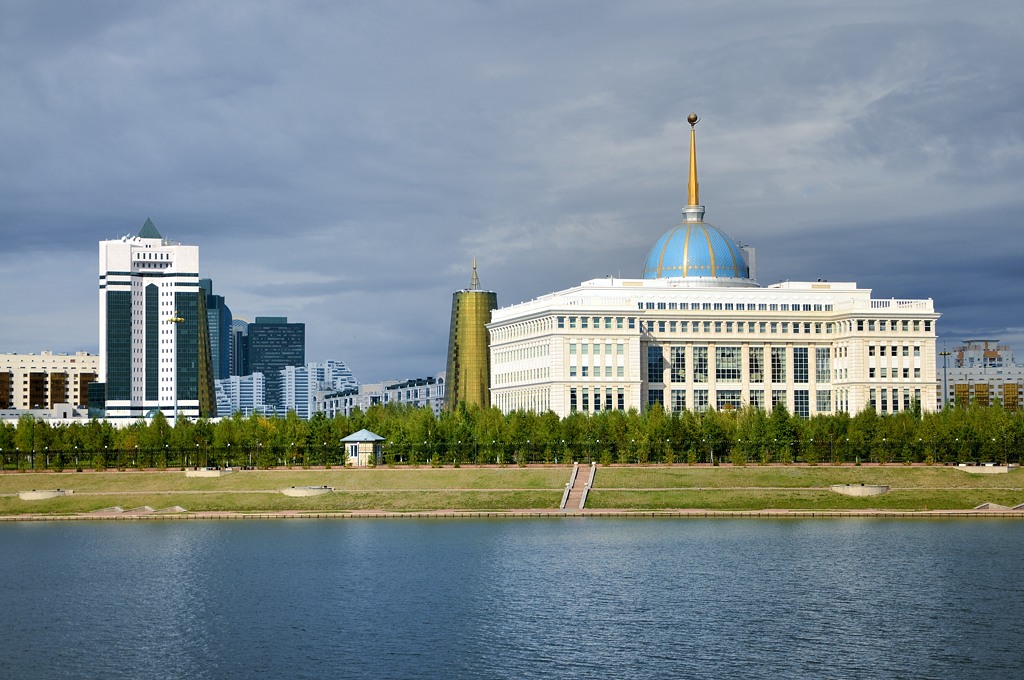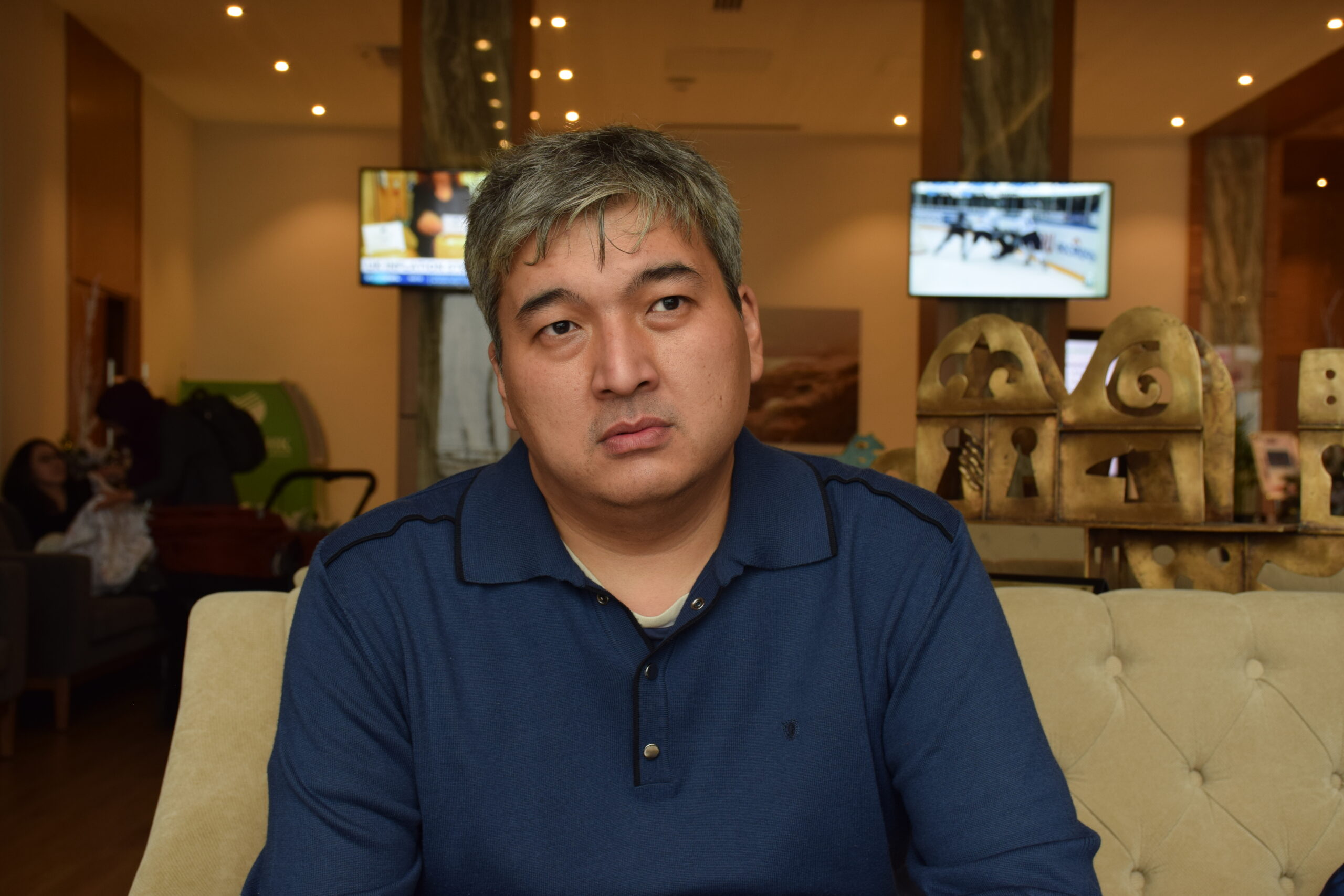ASTANA — Kazakhstan’s course towards renewing its political system focuses more on changing the institutions and their work, political expert Daniyar Ashimbayev wrote in his Telegram post on April 4, addressing recent reappointments in the Parliament and the government that saw minor changes.

Astana’s skyline. Photo credit: qazaqstan3d.kz.
Maulen Ashimbayev was re-elected as Kazakhstan’s Senate Chairperson on Jan. 26, while Yerlan Koshanov was re-elected as the Speaker of the Mazhilis, the lower chamber of the Kazakh Parliament, following a secret ballot vote in the Mazhilis on March 29.
Alikhan Smailov was re-appointed as Prime Minister on March 30, after his candidacy was supported by the majority of the Mazhilis members.

Daniyar Ashimbayev. Photo credit: Ashimbayev’s personal archive.
“I would like to point out that the path to renewal is largely concerned with institutions and their work. The new system envisions a dialogue mechanism and strengthened external control over the executive branch. The reforms carried out last year are merely the beginning of this process, including identifying and correcting deficiencies,” wrote Ashimbayev.
According to the expert, the re-election of Maulen Ashimbayev and Yerlan Koshanov is a justified move because both are experienced politicians.
“Maulen Ashimbayev purposefully broadens the scope of the Senate, transforming it into a center of synthesis of regional and central issues, trying to unlock the potential of local deputies. Yerlan Koshanov is a thoughtful and experienced executive who aims to ensure a constructive dialogue in the Mazhilis,” he said.
Daniyar Ashimbayev considers Smailov’s reappointment as head of the Kazakh government as an indication that “this government should independently try to resolve the list of issues that it has created.”
It is critical, he noted, that the government follows through on the execution of the previous year’s budget and the delivery of national projects, as the situation in both places is “dire.”
According to Ashimbayev, the Smailov-led government faces the challenge of containing and even reducing inflation, which currently stands at 18 percent. Smailov named it one of the primary priorities for this year at an expanded government meeting on April 4, alongside other measures to improve the country’s quality of life.
However, Ashimbayev believes dealing with the increasing fuel and utility prices is the most challenging task for the government in the coming months, considering the population’s growing day-to-day expenses.
He underlined that President Tokayev wants the government, particularly ministers, to learn how to make decisions and take responsibility for them.
“The government categorically does not want to demonstrate these abilities. According to them, the geopolitical situation and the population’s heightened expectations are to blame for inflation, while the increase in fuel prices is solely due to the intrigues of neighbors. Given that the Ministry of National Economy wants to rewrite the national planning methodology, it is clear that failures have been noted in practically all indicators. No one has seen the national report on reforms, yet according to the 2021 outcomes, the plans have been fulfilled by a third,” he said.
The expert adds that neither the economic bloc at the Executive Office of the President, nor the government or the National Bank have commented on the latest economic decisions made by the President and developed in their offices.
“Most likely, this year will be marked by educational work to develop the skills of responsibility in the work of officials,” Ashimbayev said.
The expert drew attention to “this season’s key rotation” of the President’s Executive Office after Olzhas Bektenov, who previously served as chairman of the Anti-Corruption Agency, took over as Chief of Staff of the Presidential Administration, replacing Murat Nurtleu, who was appointed new Deputy Prime Minister – Minister of Foreign Affairs.
According to Ashimbayev, Bektenov’s candidacy was unexpected but deserved considering his excellent work at the Anti-Corruption Agency. At the same time, he stressed that Bektenov’s extensive experience in numerous government institutions plays a more prominent role.
“He is a well-informed person who is not involved in corruption or political scandals and is not a member of the clans. He is seen as a capable and thoughtful leader uninterested in self-promotion or despotism. A relatively public figure, he also demonstrated high efficiency in his previous position, a rare attribute in today’s generation of leaders,” Ashimbayev said.
The expert points out that the choice of the Anti-Corruption Agency Chair to lead the President’s Executive Office might indicate a strengthening of control and monitoring functions, as well as an equal distance from the key players whose system has developed over the last year.
According to Ashimbayev, the current government came together “partly spontaneously during the turbulent events of the past year.”
“President Tokayev is clearly unhappy with how it functions,” he added.
The political expert said that while recognizing the importance of competent political management of the President’s Executive Office, it is critical to tackle the issue of control over the assigned tasks and establish rigorous management of the country’s socio-economic situation.
